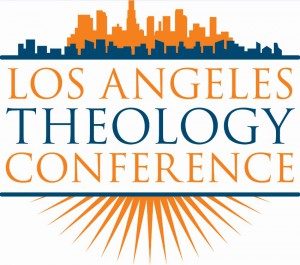Author: Fred Sanders
-
Thoughts Gymnastikos on Alternatives to Trinitarian Regiratio
Athanasius of Alexandria (4th century), always trying to put the best face on the writings of Origen (2nd century), once cautioned readers that Origen sometimes wrote dogmatikos (expressing his actual considered opinion and judgments), but at other times this “labor-loving man” wrote gymnastikos, as if trying out ideas, “as if inquiring and by way of exercise.” It is in…
-
Nine Mighty Acts of God (Christoph Barth’s OT Theology)
Christoph Barth’s 1991 “theological introduction to the Old Testament,” God With Us, organizes the theology of the Old Testament not around doctrines, but around divine acts. Christoph selects nine divine acts, to be specific. Here are my summaries of how he develops them. Not much commentary from me, just summary of what Barth selects under each…
-
God With Us (Christoph Barth)
Karl Barth once remarked that if he could be accused of founding a school of Barthians, then at least its membership was limited to his two sons, Markus and Christoph, who were professors of New and Old Testament respectively. Not a bad academic family legacy for a systematic theologian! Markus Barth (1915-1994) was a pretty…
-

Locating Atonement: Coming in January 2015
In systematic theology, three doctrines stand out as mega-doctrines, as conceptual clusters that are right at the center of understanding the faith. Those three classic doctrines are incarnation, Trinity, and atonement. Those three classic doctrines also happen to be the doctrines that we are taking up in the first three years of the annual Los Angeles Theology…
-
Love Reigns IN God, Not OVER Him
I’ve been meaning to write something about this, but every time I read this paragraph, I just want to keep quoting it rather than saying anything about it. So here, in his own words, is W. B. Pope on God’s love and the atonement: There is prevalent among professedly orthodox theologians a tendency to ascribe…
-

Theology of First John
Courtesy of Open Biola, here is video of a lecture I gave in December 2013 for students at the Torrey Honors Institute. The title of the one-hour lecture is “The Theology of First John,” and while that accurately captures the main task, the lecture also spends a fair bit of time motivating and orienting readers…
-
So Many Books at LATC 2014, Jan 16 & 17
In just a couple of weeks, Fuller Theological Seminary will be hosting the second annual Los Angeles Theology Conference: Advancing Trinitarian Theology. Oliver Crisp and I, along with Katya Covrett of Zondervan Academic, have planned this major event which is almost upon us. It’s on January 16 and 17, 2014. Register at the permanent home…
-
"O Spare Me" for the New Year (W.B. Pope)
Should a Christian pray for a longer life on earth? Never mind admitting that that’s what you want; the question is whether you have any grounds for asking God to give you more years of this life. In 1869, Methodist theologian William Burt Pope published a sermon for the new year, on the last line…
-
Christmas Playlist 2013: Instrumental Good Cheer
Instrumental Christmas: The Sanders household just wasn’t in the mood for the all-out onslaught of the familiar Christmas music in the early days of this December, so we put together a set of wordless wonders, and we sought out as many unfamiliar tunes as possible. It’s a nice change of pace (though if you want…
-
Personhood According to Pannenberg
Wolfhart Pannenberg is one of the most accomplished theologians of the twentieth century. His skill as a rigorous doctrinal thinker is well served by his mastery of historical materials on every Christian doctrine. Pannenberg’s first major publication was in 1963 (a multi-author set of essays entitled Revelation as History), and he completed a three-volume Systematic…
-
With the Current, Not Across It
I’ve stopped saying “Just before he ascended into heaven, Jesus gave his disciples the Great Commission.” Here’s why: When I teach about the Great Commission (Matt 28:18-20), I underline its importance by showing that these are the last words Jesus speaks at the end of the gospel of Matthew. I love to explore how ideas…
-
The Classical Question of the Origin of Evil
At a recent panel discussion (ETS 2013 in Baltimore), I was asked to say a few things about John Wesley’s view of the origin of evil. The first thing I wanted to say is that Wesley thought of the origin of evil as a classical question. By calling the question of evil’s origin “classical,” I…